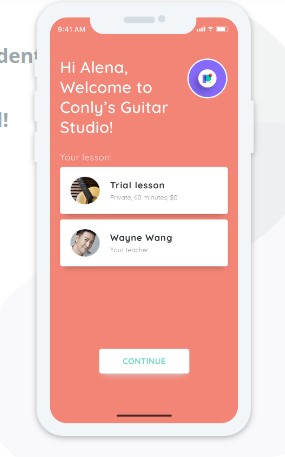The COVID-19 pandemic has reshaped the way we approach various aspects of life, including how we create and enjoy music. Music, often regarded as a universal language, has played a crucial role in providing solace and connection during these challenging times. As we emerge from the pandemic, the significance of music studio apps becomes even more pronounced, acting as essential tools that bridge the gap between musicians, producers, and enthusiasts, fostering creativity, collaboration, and accessibility in the world of music.
1. Remote Collaboration and Connectivity:
One of the primary reasons why music studio apps have become indispensable post-pandemic is their ability to facilitate remote collaboration. The lockdowns and social distancing measures forced musicians to explore new avenues for creating music, often in isolation. Music studio applications empower artists to collaborate seamlessly from different locations, breaking down geographical barriers and allowing for the exchange of ideas in real-time. Whether it’s a songwriter in one city working with a producer in another or a band collaborating virtually, these apps enhance connectivity and open up a world of possibilities for collaborative music creation.
2. Flexibility and Adaptability:
The unpredictable nature of the pandemic underscored the importance of flexibility and adaptability in various aspects of life, and the music industry is no exception. Music studio apps offer a range of features that cater to the evolving needs of musicians and producers. From virtual instruments and digital audio workstations (DAWs) to cloud-based storage solutions, these apps provide a flexible and adaptive environment where artists can experiment, refine, and produce music without being tied to a physical studio space. This flexibility not only fosters creativity but also ensures that musicians can continue their work regardless of external circumstances.
3. Accessible Learning and Skill Development:
The pandemic led to an increased interest in learning and skill development, and music studio applications have played a pivotal role in making music education more accessible. With online tutorials, virtual classes, and interactive learning modules embedded in these apps, aspiring musicians can enhance their skills from the comfort of their homes. The democratization of music production tools through these apps empowers individuals with the resources to explore their musical potential, contributing to a more inclusive and diverse music landscape.
4. Innovative Music Production:
Music studio apps have ushered in a new era of innovation in music production. With advancements in artificial intelligence (AI) and machine learning, these apps offer features like smart composition tools, automated mixing, and mastering capabilities. These innovations not only streamline the production process but also provide musicians with creative tools to experiment with sounds, arrangements, and genres. As the post-pandemic music scene evolves, these innovative features contribute to the continuous evolution and diversification of musical expression.
5. Global Exposure for Independent Artists:
The pandemic emphasized the role of digital platforms in connecting artists with global audiences, and music studio apps contribute significantly to this global exposure. Independent artists, who may not have the resources for traditional studio recording, can produce high-quality music from their homes using these music education apps. With the ability to distribute and showcase their work online, musicians can reach a worldwide audience without the need for extensive promotional efforts. This democratization of the music industry empowers artists to build their own paths and connect with fans on a global scale.
In the aftermath of the pandemic, the music industry continues to evolve, and music studio applications stand as integral components driving this transformation. Beyond mere tools for recording and production, these apps have become catalysts for creativity, collaboration, and accessibility. As musicians and enthusiasts embrace the new normal, the significance of music studio apps will only grow, shaping a future where the universal language of music transcends boundaries and resonates with a diverse and interconnected global audience.

